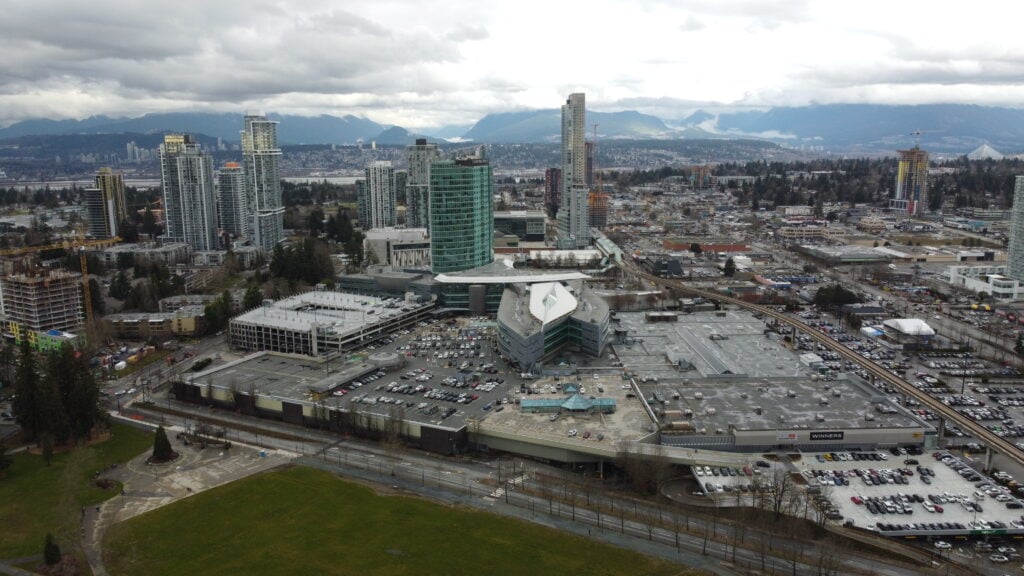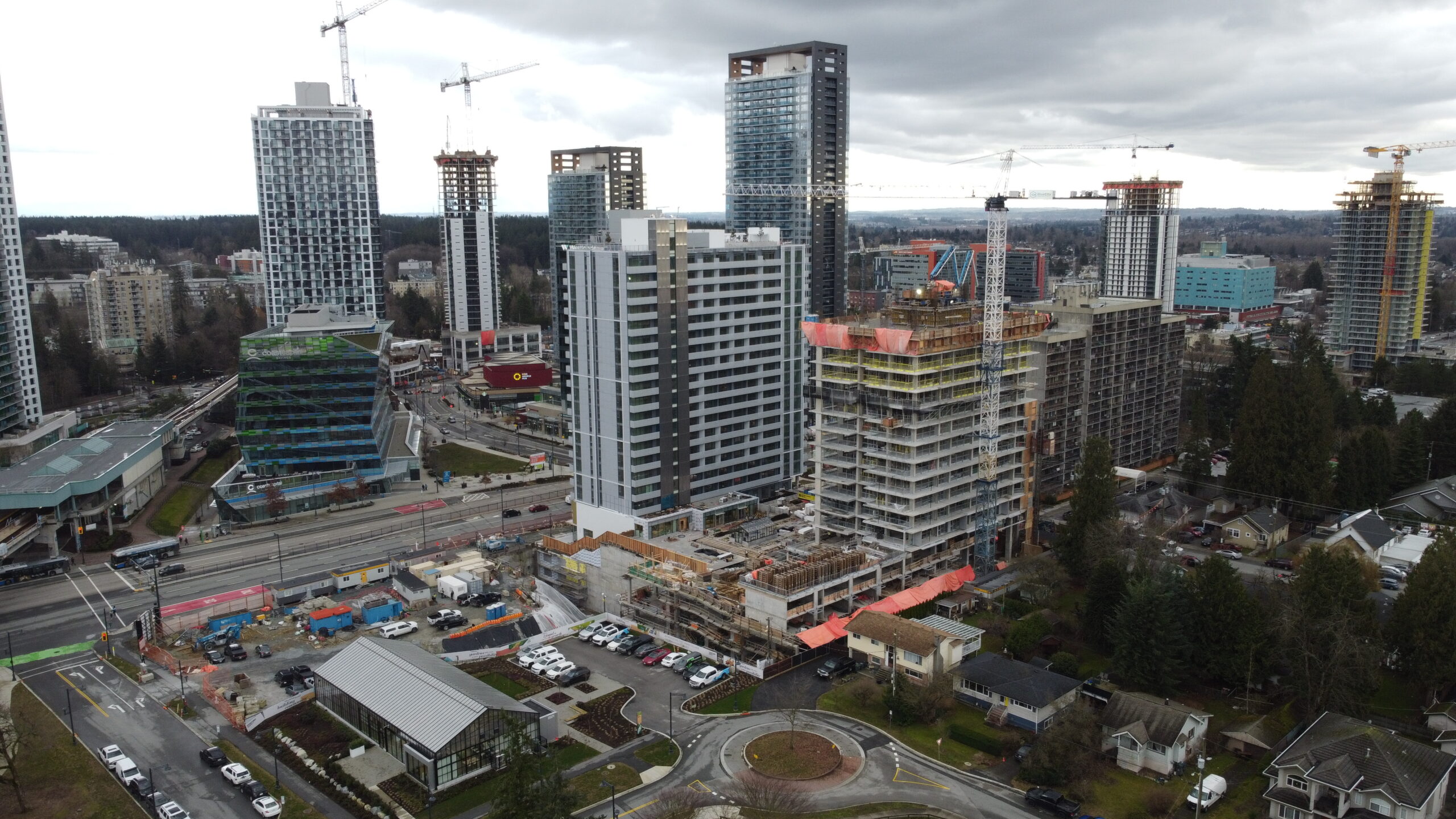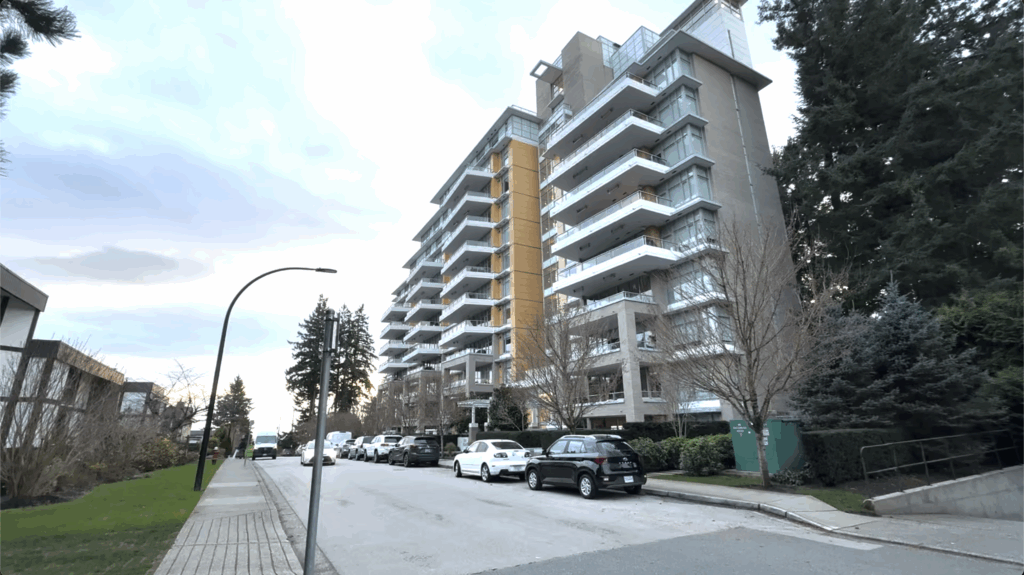The Cons of Living in Surrey, BC
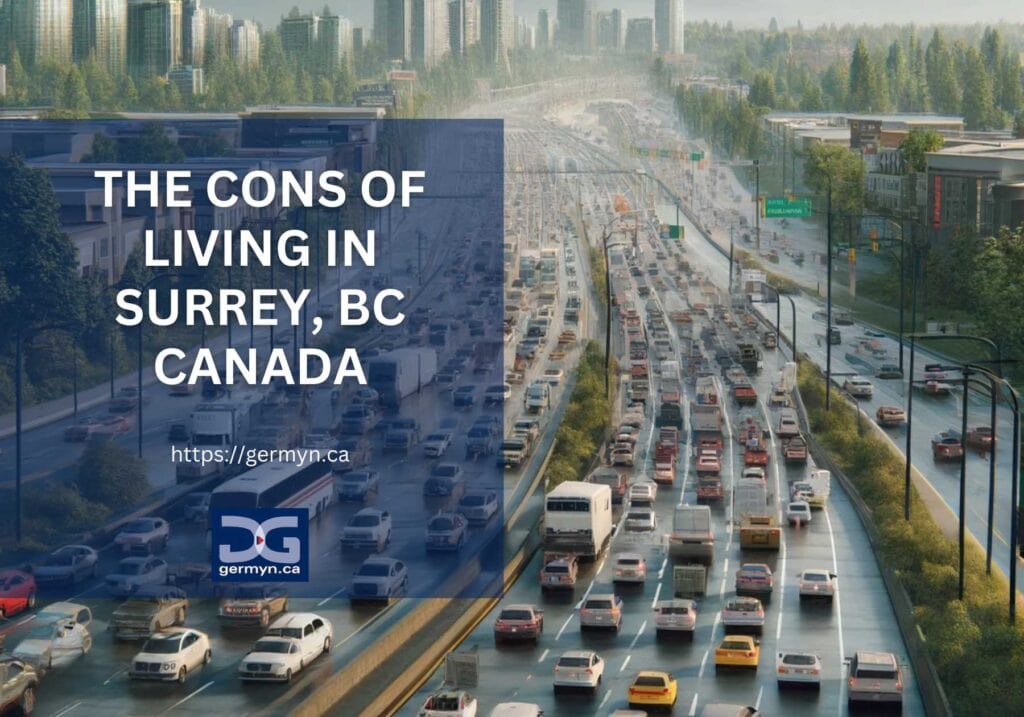
Considering moving to Surrey? It’s important to get the full picture—the good, the bad, and especially the ugly. Today, we’re diving into the lesser-known aspects that might affect your decision to make Surrey your next home.

CONS Of Living In Surrey BC Canada: What You NEED TO KNOW Before Moving | Living In Surrey BC Canada
My name is Darin, the team leader with the Germyn Group, with Macdonald Realty, a REALTOR in Surrey, British Columbia.
If this is your first time reading our blogs, we are here to educate you on everything there is to know about living in Surrey or White Rock, British Columbia. If you’re looking to make a move in the next 9 days, 90 days or 9 months, shoot us a text, give us a call, or book an in-person zoom meeting with us so we can learn a little bit more about your situation and let you know what we can do to help you. This way, we can make sure your move to Surrey or White Rock is a smooth one
Now lets get into the CONS about living in Surrey, BC:
Traffic Troubles
Surrey, as an integral part of the bustling Metro Vancouver area, encounters significant traffic challenges. The city grapples with some of the most severe traffic congestion in the region, which is not only a daily inconvenience but also a substantial drain on productivity and quality of life.
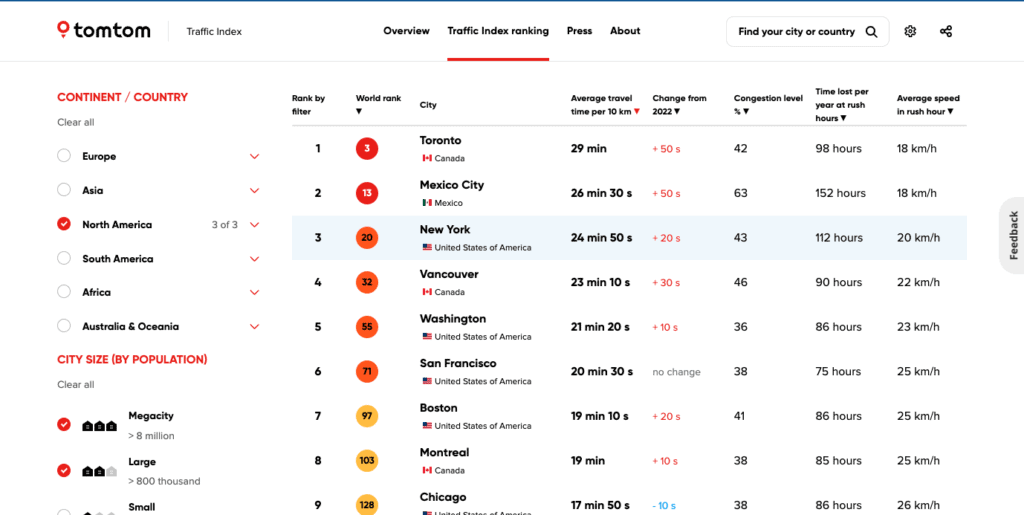
According to the TomTom Traffic Index, Vancouver ranks 4th in North America for the worst traffic congestion, and as part of this metro area, Surrey shares in these challenges.
Drivers in Surrey spend approximately 200 hours per year in rush hour traffic, equating to nearly nine full days lost to traffic annually. This congestion is not only frustrating but also impacts the environment due to increased emissions from idling vehicles.
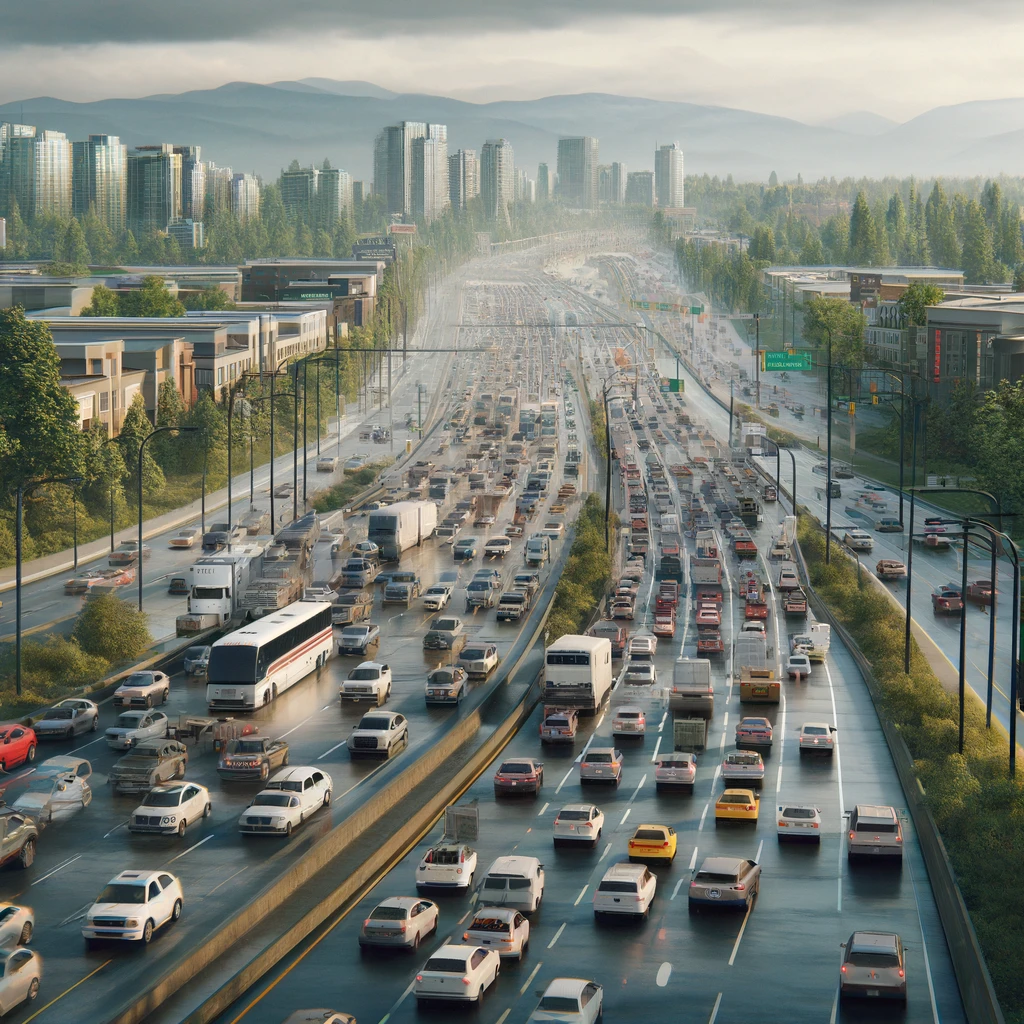
The traffic woes in Surrey are exacerbated by a number of factors. Continuous construction projects necessary for the city’s growth often disrupt traffic flow, leading to significant delays.
Additionally, the existing infrastructure, which includes outdated and undersized tunnels and bridges, struggles to keep pace with the increasing demands of a rapidly growing population. This results in frequent bottlenecks, especially at critical transit points, further compounding the city’s traffic problems.
Public Transportation Gaps
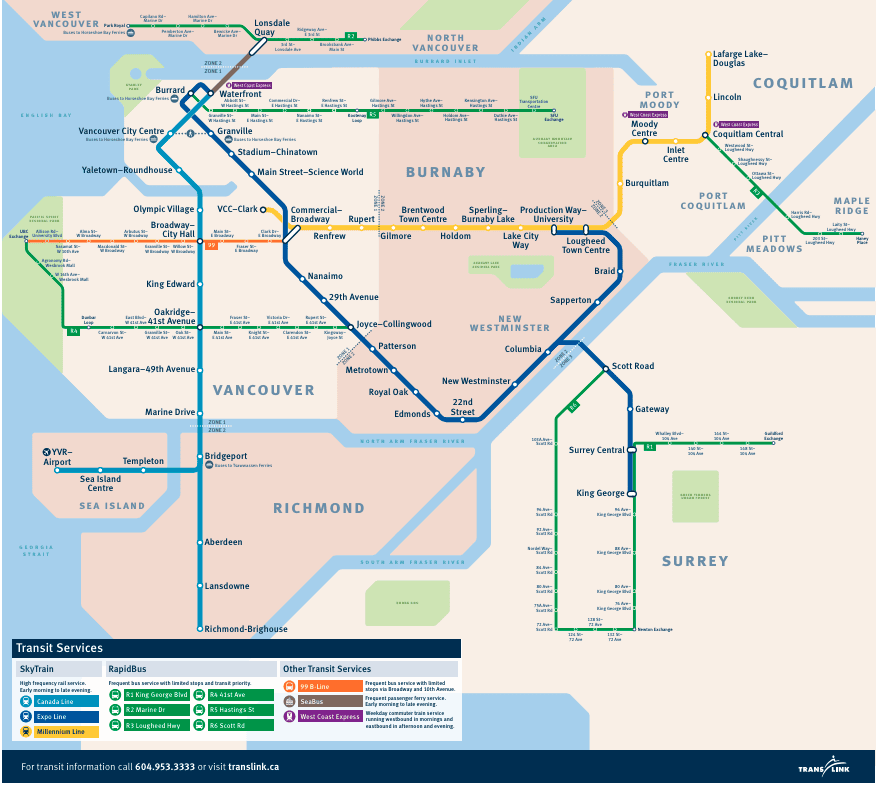
Surrey’s public transportation network features a range of options including buses and the SkyTrain Expo Line, which primarily serves North Surrey.
Despite these resources, the distribution of public transport services across the city is uneven, leading to significant disparities in accessibility to the rest of Surrey, Langley, White Rock, Delta and much more.
For residents in these underserved areas, the lack of nearby transit stops and infrequent service schedules result in longer and more lengthy commutes.
This not only affects their ability to reach essential services such as work, schools, and healthcare facilities efficiently but also diminishes their overall quality of life. The reliance on public transport in these areas can lead to increased waiting times and longer travel durations, which can be particularly taxing for families, the elderly, and those with mobility issues.
Healthcare Shortcomings
Surrey’s healthcare system is facing significant pressure due to the city’s rapid population growth, which is among the fastest in the region. This expansion has led to an increased demand for medical services, exacerbated by Surrey having the highest birth rate in British Columbia. The rising number of births puts particular stress on maternity and pediatric care, which are already stretched thin.
A notable issue is the new hospital planned in the Cloverdale area, which, despite being a $2.88 billion investment, will not include a maternity ward. This oversight is critical given the city’s growing needs and the current overcapacity issues faced by Surrey Memorial Hospital, the primary healthcare facility in the area.
The hospital frequently experiences diversions in its maternity ward due to the high volume of births, which means pregnant women may need to travel farther for care or face longer wait times.
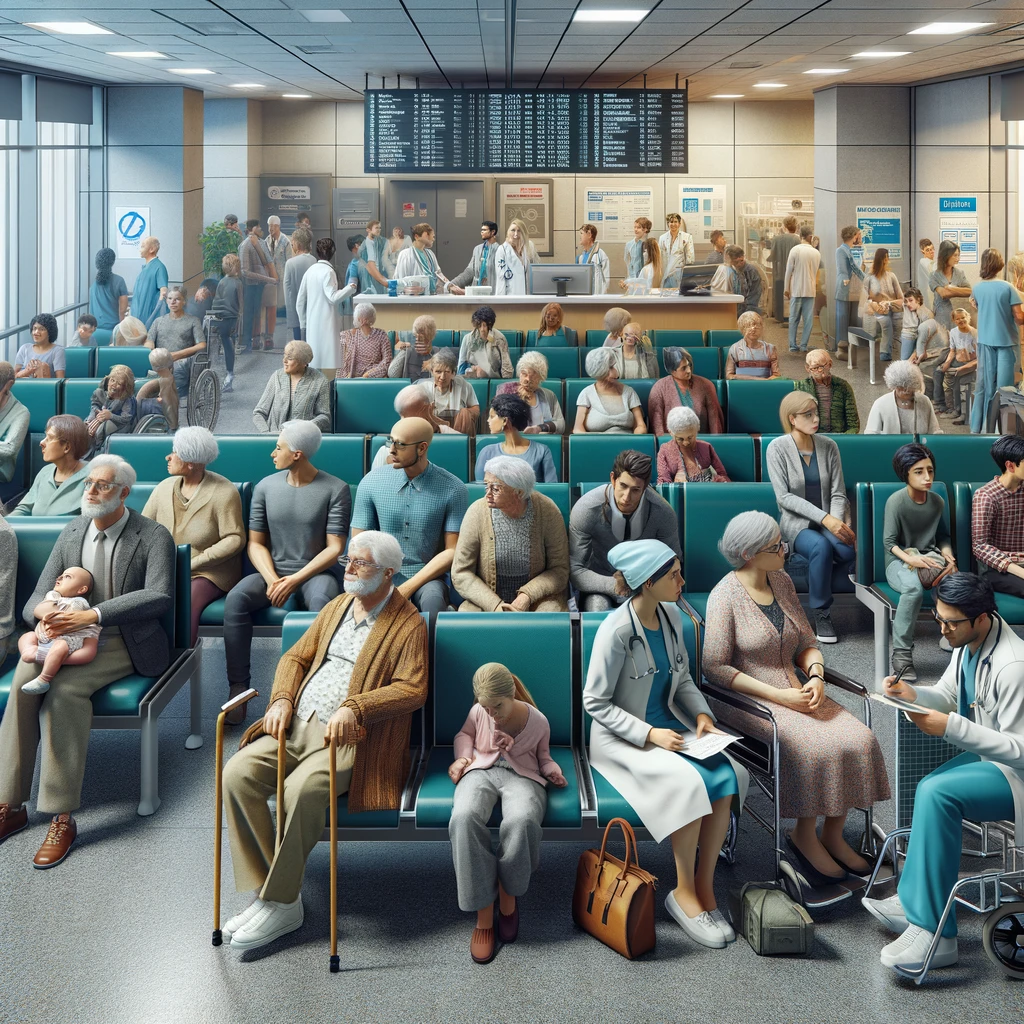
Furthermore, the city struggles with inadequate facilities to treat major health emergencies. For example, it’s reported that Surrey is the only major city in Canada where the healthcare system cannot treat the three leading causes of sudden death: heart attacks, strokes, and major traumas, leading to nearly 1,400 patient transfers each year.
Urban Sprawl and Community Strains
As Surrey experiences rapid population growth, the resulting urban sprawl extends the city’s boundaries, impacting essential community infrastructure and services. This expansion places significant demands on schools, parks, and community services, which are foundational to maintaining residents’ quality of life.
Additionally, community services such as healthcare, public safety, and transportation are strained under the weight of a rapidly growing population. Public transportation systems also need to expand and adapt to serve more residents effectively, reducing congestion and supporting sustainable urban mobility.
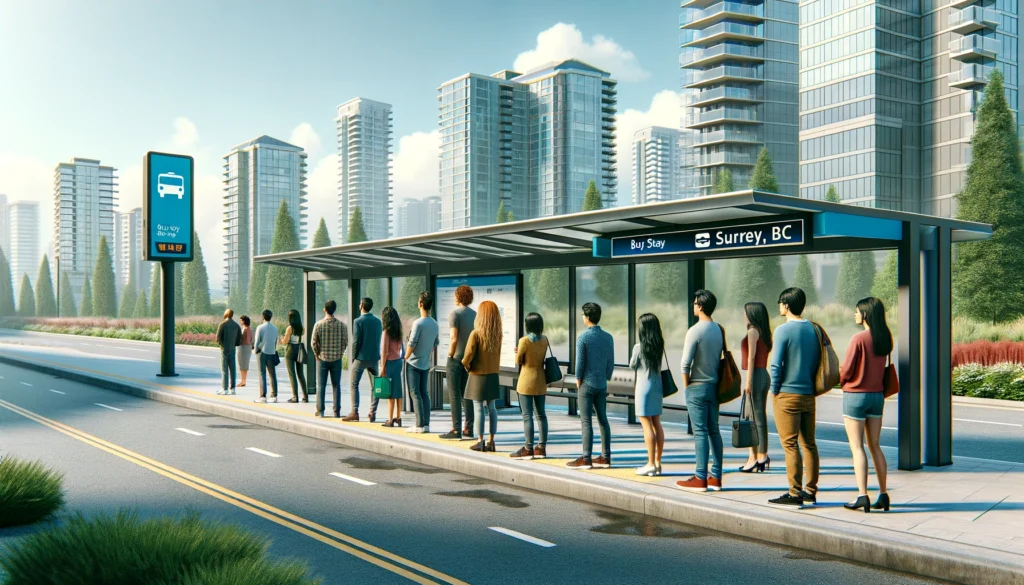
Surrey’s ability to manage this growth sustainably is therefore critical. Planning should include proactive investments in infrastructure development and a focus on enhancing the livability of new and existing neighbourhoods.
School Overcrowding
In fast-growing areas like Surrey, schools are grappling with significant overcrowding, which impacts the quality of education.

Increased student-to-teacher ratios make it challenging for teachers to manage classrooms effectively and provide individualized attention.
Limited physical space restricts the availability of essential resources like science labs and arts facilities, diminishing the educational experience. Overcrowded schools also affect student engagement and morale by limiting space for safe and efficient movement.
Policing and Public Safety Concerns
In Surrey, the ongoing debates about transitioning from the Royal Canadian Mounted Police (RCMP) to a municipal police force (Surrey Police Service) highlight a community deeply engaged in discussions about public safety and policing effectiveness.

Photo courtesy of SurreyPolice.ca
This potential shift reflects a desire for more localized control over policing and the hope that a municipal force would be more in tune with the specific needs of Surrey’s diverse communities. Proponents argue that a local force would provide faster response times and better tailored community policing strategies.
However, opponents worry about the costs of such a transition and potential disruptions during the switch-over period. These debates are critical because they directly affect the perception of safety in the community and the level of trust residents have in those tasked with their protection.
Social Challenges
Surrey’s multicultural landscape offers a rich tapestry of cultural diversity, yet integrating into this varied community can pose significant challenges for newcomers. Despite the city’s efforts to promote inclusivity through community programs and events aimed at celebrating diverse cultures, barriers such as language differences and cultural misunderstandings can persist.
New residents may find it difficult to navigate social norms and community resources, which can lead to feelings of isolation or exclusion. Moreover, employment opportunities may be less accessible to those who lack local experience or connections, further complicating the integration process.

Educational initiatives aimed at enhancing cultural competence among all residents, along with more targeted support services for newcomers, are critical for fostering a truly inclusive community.
As Surrey continues to grow and diversify, the success of its integration efforts will largely depend on the city’s ability to address these challenges effectively, ensuring that all residents feel welcomed and valued.
What if I have any questions about moving to Surrey, BC?
Selecting an excellent real estate professional is key to a successful home purchase. The Germyn Group, with our deep understanding of White Rock and its real estate dynamics, is committed to guiding you every step of the way.
We invite you to book a consultation with us. During our meeting, we’ll discuss your needs, preferences, and any questions you might have about the Surrey real estate market.
As you embark on this exciting journey, remember that the right home in Surrey is more than just a property; it’s a foundation for your future. With the Germyn Group by your side, let’s make your dream of homeownership in Surrey a beautiful reality.
People lose money in real estate because they don't know what's actually happening.
Our YouTube channel fixes that.
We show you what most agents won't – what's really happening in Surrey & White Rock, and how to win whether the market's up or down.
It's free. No fluff. All signal.
Subscribe now — or stay guessing.

